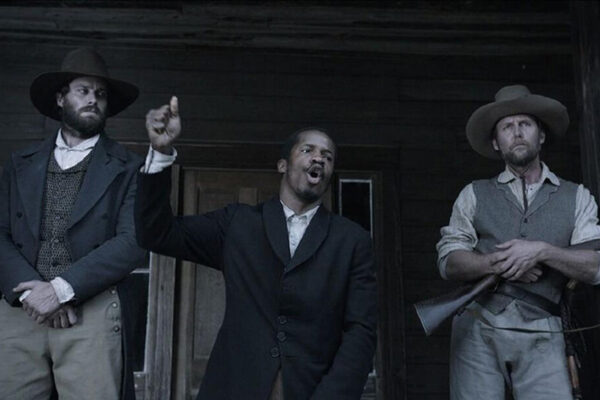This post was also published by the Los Angeles Sentinel.
I was not quite ready for the personal challenge posed by “The Birth of a Nation,” the new film by Nate Parker. The lead character, Nat Turner—a slave preacher turned revolutionary—faces internal moral conflict when the politics of slavery forces him preach to slaves about being obedient to their brutally violent slave masters. The pulpit of the black church has always been a sacred place for the black prophetic tradition, but in this film we learn how it was also used to promote complicity with evil.
As a black preacher, I began to wonder if I had ever been guilty, even in the slightest, of aligning my sermons with any agendas of oppression. Had I ever encouraged people to be silent when they should be crying aloud, or to sit when they should stand, or to be passive when they should fight back? This October marked my 20th year in ministry; sleepless, I spent the rest of that night going back through my memory of sermons I’ve given over the years. Then I prayed: “God, if I ever allowed my sermon to be usurped by the voice of oppression, I repent now, God! And never let it happen in me!”
We are in a strange and strained political season, and the prophetic voice is needed now more than any time recent memory. What “The Birth of a Nation,” #BlackLivesMatter and my own personal epiphany has brought forward is the belief that we must as clergy reclaim, revive and restore our prophetic voice. Now, let me clarify what I mean by my prophetic voice: By that phrase, I mean using my voice to call out those powers of imperialism and white supremacy that have seeped into every institution in this country and also to call out when we have strayed from what Prof. Dwight Hopkins describes as “the path of our covenant with God, of love, faith, resources, justice.” Simply put, using a prophetic voice is speaking truth to power, without apology. It is to tell Pharaoh “Let my people go!” And it is to tell my people, “You have cried at this mountain long enough—get up and move forward!”
To be sure, many clergy will not speak up or speak out; they will not “cry aloud, spare not, lift up thy voice,” as Robert F. Shedinger writes in his book Jesus and Jihad. Shedinger is clear that there is no virtue in this silence, though it comes with challenges: “Making a prophetic critique of the secular powers that authorize injustice will get branded as abusing religion for political ends. The sacred and secular must not mix, we are told.”
On November 8, we will elect either the first woman or the first reality TV star as president. Either way the coin falls, the pulpit must speak, and continue to speak, to the political climate. This is our tradition and our responsibility.
Being prophetic from the pulpit doesn’t mean endorsing a candidate from the pulpit. This prophetic social justice tradition includes holding candidates on all levels accountable, calling out injustice in proposed legislation, offering critical analysis that enables educated voting and encouraging congregants to not become apathetic in the process. With their Love Votes and Together we Vote campaigns, PICO National Network can help pastors by reinforcing the church’s role to be intentionally prophetic and lift up a moral voice in times like these.
In the end, Nat Turner used his pulpit to call the people to revolt. For a brief moment, his congregants were free men because they chose to fight—the most powerful line for me was “Not today!” Sadly, Turner and his flock had the right idea but the wrong strategy.
As a 21st century prophetic voices, we have the charge to call not for a revolution against a system that is fundamentally unjust, like slavery, but for a solution to the problems that arise when we forget the ideals of justice at the heart of our democracy. In either case, not speaking out in a prophetic voice is to become complicit in evil.
Photo Courtesy of “The Birth of a Nation,” Fox Searchlight
Rev. Najuma Smith is Assistant Director of Community and Public Engagement with the USC Center for Religion and Civic Culture.







